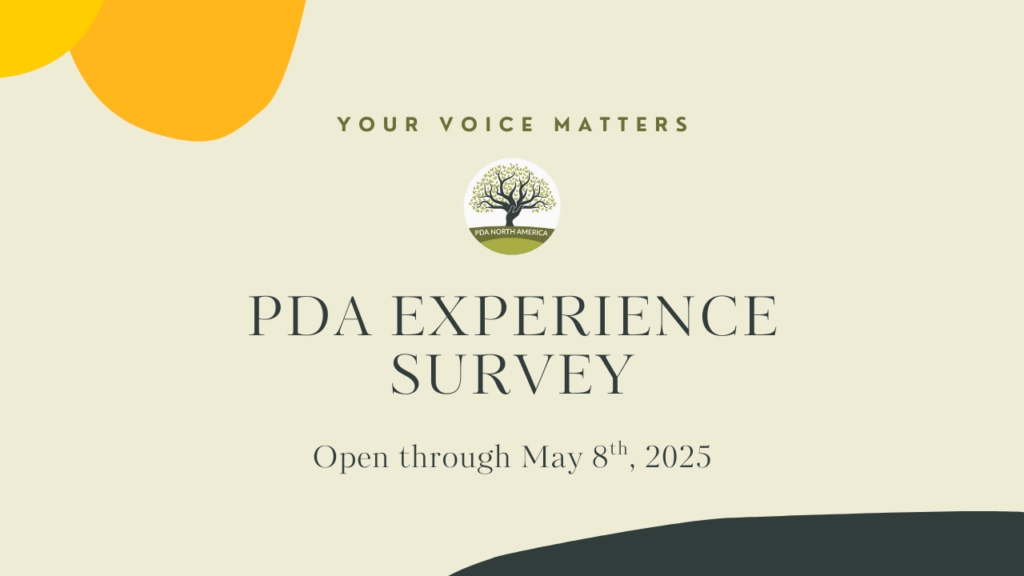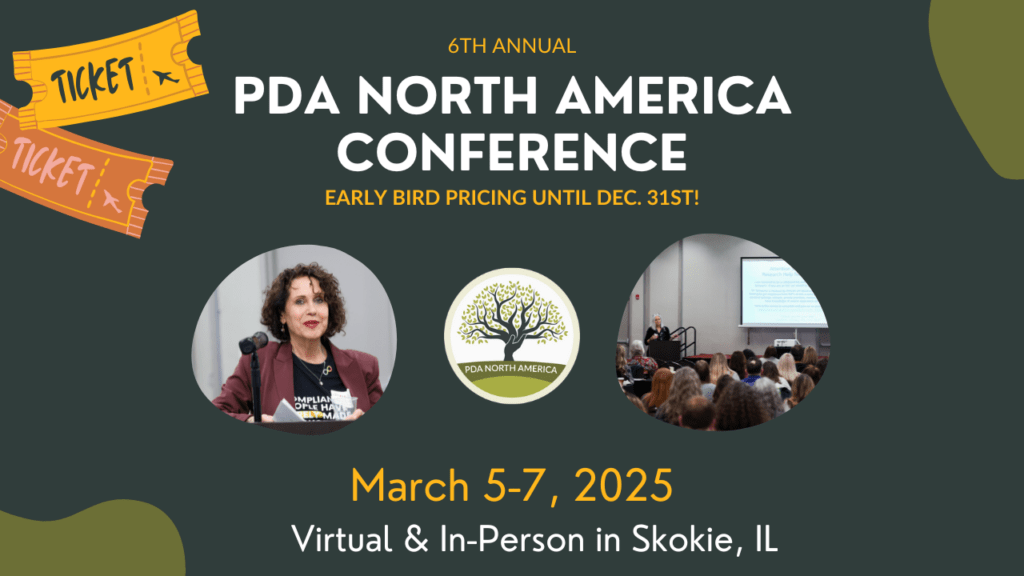by Diane Gould, Author of Navigating PDA in America & Founder of PDANA
In my first conversation with Ruth Fidler, an early leader in the UK’s PDA movement, I was shut down when I started asking questions about PDA. Ruth told me that before one can understand PDA, they need to correctly understand autism. I was surprised and to be honest, a bit taken back. I thought that I did understand autism. I had been working in the field for decades. Now, I humbly look back at that conversation and am so grateful. For professional and personal reasons.
I now believe that PDA had autism right, way before the mainstream caught up. PDA paints a picture of non-stereotypical autism which applies to most autistic humans. A striking but obvious example is that there is no gender differential in PDA where in common autism discussions, it is presented as males are 4 times more likely to be autistic. The stereotype about autistic people not being interested in social connection also is inaccurate. Perhaps most damaging is that autistic people are presented as lacking empathy and insensitive. Nothing can be farther than the truth in my experience. Most of the autistic people who I know are hypersensitive. Sometimes survival instincts come in conflict with this which is often misunderstood. There is no inclusion of neurodiversity, and that the world is not designed for the autistic neurotype.
For those of us who were “trained” in autism, we need a process of unlearning. I have come to realize that unlearning is even harder than learning. For those of us who drank the Kool-Aid of behaviorism, there is so much unlearning to do. It can be hard to see how we are often embracing short term success at the expense of long-term well-being. There is so much work to be done.
My priority is to work towards autism being understood correctly which also means broadly. There needs to be a more nuanced understanding that includes differing presentations including PDA. I imagine a world where every discussion about autism will be this way. Future therapists and teachers will be trained to understand autism correctly. Books and websites won’t just give behavioral checklists to understand autism. PDA will become part of that conversation as a distinct autistic profile which is important to recognize as it is often misunderstood.
This is the reason why my priority is not to get PDA in the DSM. Sure, it would be great if it was, but it is a long and arduous process. I believe that we first must get the psychiatric community to understand and recognize PDA for that to happen. Increasing awareness and understanding of PDA continues to be my priority and what we are doing is working. I want to stay the course. We are also making progress in training psychologists in the US to diagnose individuals as autistic with a PDA profile. There are some amazing psychologists out there who are leading the way. That does not mean that I won’t support others who want to take on the DSM challenge. I recognize that as different people we have different views and priorities. The diversity of thought is a beautiful and appreciated element of the PDA world. I am so proud to be part of this growing and dynamic community.
About Diane Gould: Diane is a Licensed Clinical Social Worker that specializes in serving autistic individuals. As the Executive Director and Founder of PDA North America, she founded the annual PDA North America conference held in Chicago that has changed the lives of hundreds of PDA families.
Currently, Diane has a private practice in the suburbs of Chicago, where she serves neurodivergent children, adults and their families. Over the last 40 plus years, she has worked for both private agencies and school systems.
It was the understanding of behavior and support in the PDA literature that first drew her to learn more about PDA. And learning about PDA, led her to begin the new PDA movement in North America. Diane formed PDA North America at the first American PDA conference in March 2020. She has written a book with Ruth Fidler on Navigating PDA in America which can be purchased here.
She is making it part of her life’s mission to gain more awareness and understanding of PDA in North America through this non-profit organization.







